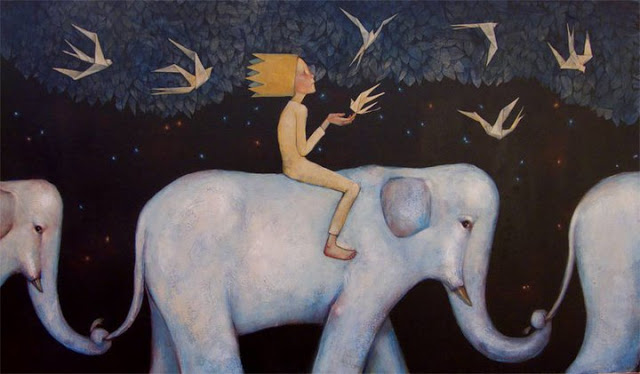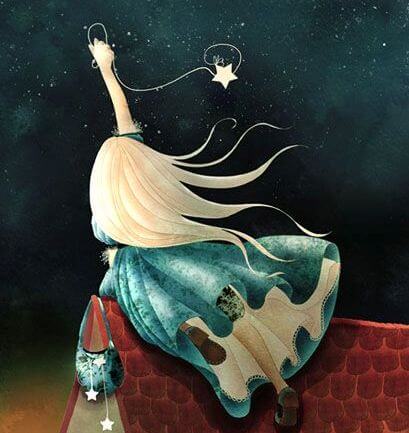Embrace and Heal Your Inner Child


Written and verified by the psychologist Valeria Sabater
My inner child continues to be inside of me, it has not gone away, it is the voice I hear when I allow myself to be free and excited about things. He who asks me to heal the emotional wounds of the past…
We often hear expressions such as “the need to heal our inner child.” Our early years and the experiences we have as children will shape much of our personality, our values, emotional balance and self-esteem.
Those early memories can become shadows of fears or anxieties, or they can be memories of a full and happy childhood accompany us as we become adults.
It is there, inside a very hidden corner of our being where the child hides. We all pretend to be mature and confident adults, well protected with our armor of great warriors fit to face this complex world. However, many times when we close our eyes, we know that we are missing something. That something is hurting us, causing a wound that is not outside but on the inside.
Inside all of us is a child with varying degrees of unmet needs.
My inner child and its emotional past
It is possible that more than one person smiles or sees something ironic in the term “inner child.” For many, this expression denotes weakness, innocence and naivety.
“Adults know everything and children know nothing,” they think. And further, “childhood is the stage we’ve all lived with carelessness and absolute happiness,” some people mistakenly assess.
Childhood is our awakening to life, where our first questions appear and where we received our first answers. If what surrounds us is detachment, sadness or abandonment, it can get in the way of us becoming emotionally secure adults.

To grow with maturity and happiness, every child needs to develop a healthy attachment where there exists a sincere love which offers security at every step, every fall, and every breath in each of their previous experiences. If the bond developed with our parents is not right, all these early experiences will affect us in one way or another.
Childhood is not always synonymous with happiness or indifference. No one is guaranteed their physical and emotional well-being by just coming into the world.
Being a child is never easy because we all need the support of someone to start walking, pronouncing our first syllables, and to know that our fears and anxieties can be extinguished by hugs and the right words.
The requests of our inner child
It is already clear that we should recognize taht we all have an inner child. It is now important that we know what it may ask us.
- Your inner child may ask you to resolve certain aspects of the past.
- You may need some explanation about an event in your childhood that demands forgiveness or for you to even offer it to someone.
- In your case it can also be that you have no emotional deprivation of the past to solve. Now, our inner child also requires us to be freer in our daily lives.
- You need to allow yourself to make your reality a little more relative, leaving behind your worries, stress…
- Be more spontaneous, allow yourself to laugh a little more, regain some of your lost innocence and with it, your excitement.
- Our inner child also demands love. Love and be loved. Defeat your objections, your shame or your gray adult appearance, and allow yourself some emotional freedom.
How to heal our inner child
The whole emotional healing process requires full and genuine conviction on our part. No one can be free by force.
It should be clear that we cannot solve a particular problem if first we do not convince ourselves that we have one. Think for example in your everyday life…
Do you suffer from a lot of stress? Have you lost hope? Do you feel that your partner, as much as they try, does not make you happy? Is there a kind of love that is missing inside you that you cannot define?

This little visual and emotional reconstruction exercise can help in many ways.
1- Take a picture of when you were little, when you were 7 or 8 years old.
2- Let the memories come back to you. Quietly evoke those years and feel free so that the emotions and images come to you.
3- Now visualize yourself with that child. It is the two of you, you as an “adult” and a “child” face to face.
4- Ask him or her what s/he needs, what s/he wants, what s/he is missing. Ask what she or he is lacking and s/he would like in order to feel free and complete.
Reflect on it. It will certainly help you.
My inner child continues to be inside of me, it has not gone away, it is the voice I hear when I allow myself to be free and excited about things. He who asks me to heal the emotional wounds of the past…
We often hear expressions such as “the need to heal our inner child.” Our early years and the experiences we have as children will shape much of our personality, our values, emotional balance and self-esteem.
Those early memories can become shadows of fears or anxieties, or they can be memories of a full and happy childhood accompany us as we become adults.
It is there, inside a very hidden corner of our being where the child hides. We all pretend to be mature and confident adults, well protected with our armor of great warriors fit to face this complex world. However, many times when we close our eyes, we know that we are missing something. That something is hurting us, causing a wound that is not outside but on the inside.
Inside all of us is a child with varying degrees of unmet needs.
My inner child and its emotional past
It is possible that more than one person smiles or sees something ironic in the term “inner child.” For many, this expression denotes weakness, innocence and naivety.
“Adults know everything and children know nothing,” they think. And further, “childhood is the stage we’ve all lived with carelessness and absolute happiness,” some people mistakenly assess.
Childhood is our awakening to life, where our first questions appear and where we received our first answers. If what surrounds us is detachment, sadness or abandonment, it can get in the way of us becoming emotionally secure adults.

To grow with maturity and happiness, every child needs to develop a healthy attachment where there exists a sincere love which offers security at every step, every fall, and every breath in each of their previous experiences. If the bond developed with our parents is not right, all these early experiences will affect us in one way or another.
Childhood is not always synonymous with happiness or indifference. No one is guaranteed their physical and emotional well-being by just coming into the world.
Being a child is never easy because we all need the support of someone to start walking, pronouncing our first syllables, and to know that our fears and anxieties can be extinguished by hugs and the right words.
The requests of our inner child
It is already clear that we should recognize taht we all have an inner child. It is now important that we know what it may ask us.
- Your inner child may ask you to resolve certain aspects of the past.
- You may need some explanation about an event in your childhood that demands forgiveness or for you to even offer it to someone.
- In your case it can also be that you have no emotional deprivation of the past to solve. Now, our inner child also requires us to be freer in our daily lives.
- You need to allow yourself to make your reality a little more relative, leaving behind your worries, stress…
- Be more spontaneous, allow yourself to laugh a little more, regain some of your lost innocence and with it, your excitement.
- Our inner child also demands love. Love and be loved. Defeat your objections, your shame or your gray adult appearance, and allow yourself some emotional freedom.
How to heal our inner child
The whole emotional healing process requires full and genuine conviction on our part. No one can be free by force.
It should be clear that we cannot solve a particular problem if first we do not convince ourselves that we have one. Think for example in your everyday life…
Do you suffer from a lot of stress? Have you lost hope? Do you feel that your partner, as much as they try, does not make you happy? Is there a kind of love that is missing inside you that you cannot define?

This little visual and emotional reconstruction exercise can help in many ways.
1- Take a picture of when you were little, when you were 7 or 8 years old.
2- Let the memories come back to you. Quietly evoke those years and feel free so that the emotions and images come to you.
3- Now visualize yourself with that child. It is the two of you, you as an “adult” and a “child” face to face.
4- Ask him or her what s/he needs, what s/he wants, what s/he is missing. Ask what she or he is lacking and s/he would like in order to feel free and complete.
Reflect on it. It will certainly help you.
This text is provided for informational purposes only and does not replace consultation with a professional. If in doubt, consult your specialist.







